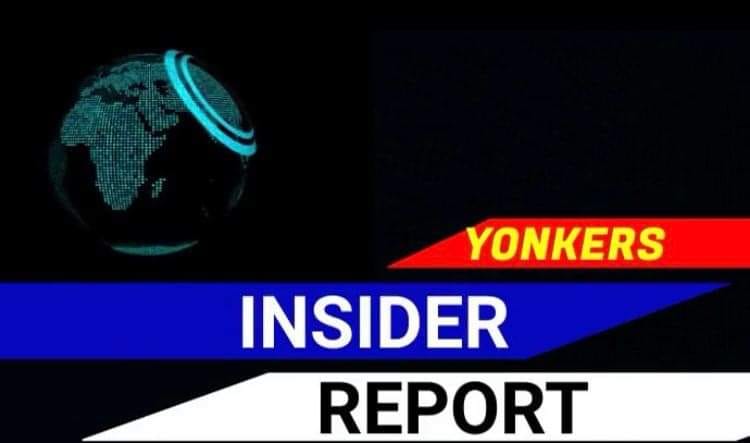On Wednesday, the Fed raised its benchmark interest rate by 0.75%, the second hike of this magnitude in just two months by the U.S. central bank in its quest to rein in the record inflation that has sent prices soaring for everything from gas and groceries to clothes and housing.
But what do the Federal Reserve's interest rate hikes actually mean for hundreds of millions of Americans – Americans who have jobs, who buy things, who have bank accounts?
In short, the federal government believes interest rates are the Fed's main tool to combat inflation. They believe Inflation is driven by strong consumer demand. By raising interest rates, which makes things more expensive, the central bank is hoping to dampen Americans' willingness to spend money. The key word is “hoping”!
"It is essential that we bring inflation down to our 2% goal if we are to have a sustained period of strong labor market conditions that benefit all," said Federal Reserve chairman Jerome Powell at a press conference Wednesday.
The Federal Reserve got inflation wrong. They're trying to correct their mistake quickly by hiking interest rates. They believe by raising the interest rates, this will slow down the economy, and alleviate inflation. That’s a canard!
Generally speaking, as the Federal Reserve raises its benchmark interest rate, everything else in the economy that involves interest rates of some kind is affected – and that's most things: credit cards, student loans, home and car loans, banking, savings accounts, the everyday operations of businesses, from purchasing power to marketing, you name it.
That means the stakes are high when the Fed raises rates, as it did on Wednesday.
Losers: People trying to buy a home now days and souring inflation at the supermarkets.
The Fed's interest rate isn't directly tied to mortgage rates. But mortgage lenders move their rates up and down based in part on what they expect the Fed to do.
With inflation so bad right now, mortgage rates rose throughout the spring and have stayed high into the summer.
Since June, the average 30-year rate has hovered above 5.5%, according to Mortgage News Daily. Earlier this year, a 30-year fixed-rate mortgage could be had for around 3.25%.
Given a loan of $400,000, the increase in interest rates has turned a monthly mortgage payment of about $1,700 into one approaching $2,300 in the span of just a few months.
That sudden increase in monthly payment cost has started to cool the country's historically hot housing market. Last year, buyers routinely paid tens of thousands of dollars over asking price and waived contingencies to stand out in a pile of other offers on a home that had been listed only a day or two.
Now, homes are starting to sit on the market longer, and more sellers are cutting prices to find buyers. Builders started fewer homes in June than they did in May.
"These numbers are all going to get worse before they get better. It's going to be ugly during the transition, but I think what we'll end up with is a market which is more healthy because it is not healthy to have a housing market where home prices are rising 20% per year or more," Ian Shepherdson, the founder and chief economist at Pantheon Macroeconomics, told NPR.
That rapid increase in cost already has priced some potential homebuyers out of the market. Mortgage applications are down to their lowest level since 2000, according to the Mortgage Bankers Association.
(Mortgage rates have historically been higher, especially in the 1980s, when rates topped 15% as part of the Fed's efforts to fight the inflation of the 1970s. But home prices now are higher than ever, having risen dramatically in many areas over the past two years.)
Economists have mixed outlooks on what all this means for the housing market. Some say that home prices will hold steady; others are forecasting a drop in prices.
At the Fed's meeting in June, Powell suggested that prospective homebuyers are waiting to see if prices stabilize. Even if the homeowners price stabilize, the monthly inflation rate on home mortgages will drive most new buyers out of the housing market.
Winners: People who have money in savings accounts and are able to transfer their savings to CD’s, money market and 401 accounts.
This one is modest, but noteworthy. With interest rates so low for the past few years, banks had little reason or wiggle room to offer any meaningful interest rates on personal savings accounts, where you might keep money for your emergency fund or a down payment savings.
I didn’t go to go to college, nor have an economics degree  , but having several businesses, I leaned how money
, but having several businesses, I leaned how money  operates in the real world
operates in the real world  . The higher the interest rate, the more difficult debt will be paid off. Haven’t we leaned anything in the 2008 and 2009 of our great collapse?
. The higher the interest rate, the more difficult debt will be paid off. Haven’t we leaned anything in the 2008 and 2009 of our great collapse?
Who is worse? The banks  or loan sharks?
or loan sharks?








No comments:
Post a Comment